DEI Resource Center
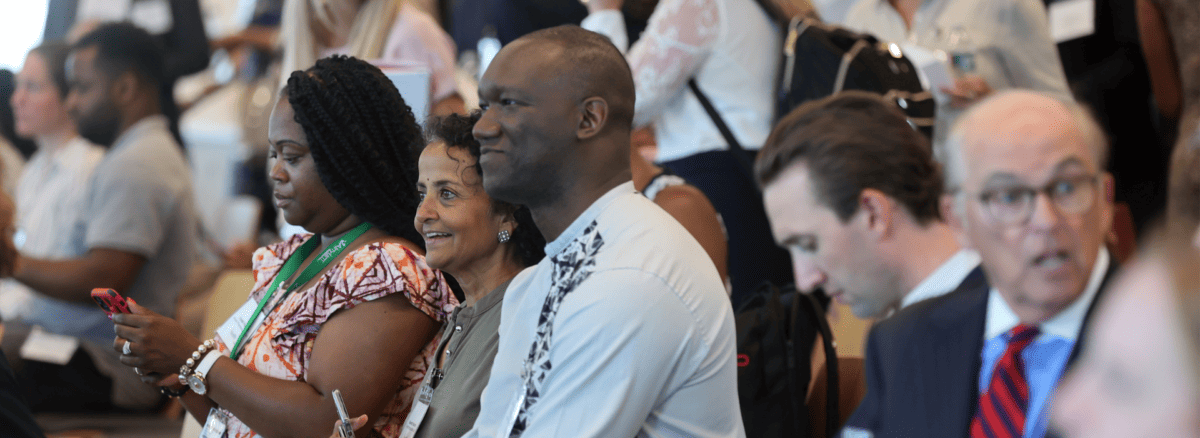
The MassBio Diversity, Equity, & Inclusion (DEI) Resource Center is a centralized hub where you can access the best practices, tools, and resources needed to achieve equitable, diverse, and inclusive excellence in your workplace.
Roadmap to Improving DEI

Every company, regardless of size, has the capacity to make significant strides in enhancing diversity, equity, and inclusion (DEI) within its ranks. Initiating these efforts now is particularly crucial, as it establishes a robust DEI foundation for your company and safeguards future success, especially as you continue to expand.
Supplier Diversity

The MassBioEdge program offers MassBio members exclusive discounts and premier customer service through a variety of leading vendors. Through our expanded partnership with Thermo Fisher Scientific, MassBio’s membership and New England Edge affiliates will have access to a 1% diverse supplier rebate incentive when purchasing supplies and services through the Fisher Scientific distribution channel. To learn more, contact Steve Powell, Senior Director of Edge.
If you are looking to do more, we encourage you to check out the following third-party resources:
Explore supplier diversity
Disability:IN Supplier Diversity Program is the leading third-party certifier of disability-owned business enterprises (DOBE). Beyond certification, the program provides information, tools, and other developmental resources — helping certified suppliers expand contract opportunities with key corporate partners, government agencies, and other disability-owned businesses. DOBE is a for-profit business that is at least 51% owned, managed, and controlled by a person with a disability. We do not certify non-profit organizations or private businesses who employ person(s) with disabilities. Click here for more information.
Greater New England Minority Supplier Development Council (GNEMSDC) advances business opportunities for certified Asian, Black, Hispanic, and Native American business enterprises and connects them to corporate members. One of the region’s leading corporate membership organizations, GNEMSDC was incorporated in 1975 to provide increased procurement and business opportunities for minority businesses of all sizes. GNEMSDC is an affiliate of the National Minority Supplier Development Council. GNEMSDC is one of the 24 regional councils represented across the US territories. GNEMSDC serves the six (6) New England States, which are MA, CT, RI, ME, NH, and VT. Click here for more information.
Massachusetts Lesbian, Gay, Bisexual, and Transgender Chamber of Commerce (MA-LGBTCC), the local affiliate of the National LGBT Chamber of Commerce, offers certification to LGBT Business Enterprises as well as a host of opportunities to enhance LGBT business’ visibility to corporations seeking to do business with LGBT suppliers. As an advocate and link, the MA-LGBTCC seeks to promote economic growth and viability for LGBT-owned and allied businesses, corporations, and professionals throughout the Commonwealth. They also work with local and state agencies to promote supplier diversity, thus, enabling LGBT businesses to flourish. Click here for more information.
National Veteran Business Development Council (NVBDC) is the only third-party Veteran Owned Business Certification program in the United States and is organized as a 501c3 not for profit foundation. The NVBDC was created for the purpose of providing a credible and reliable certifying authority that would ensure that valid documentation exists of a business’ Veteran ownership and control. Companies will gain invaluable access and visibility as a supporter of veteran enterprises success. VOB must be fifty-one percent ownership by a Veteran or Veterans. They must also provide proof of active management of the business. Veteran must possess the power to direct or cause to direct the management and policies of the business including the dissolution or sale of the company without restriction by any other party. Click here for more information.
Women’s Business Enterprise National Council (WBENC) is the largest certifier of women-owned businesses in the U.S. and a leading advocate for women business owners and entrepreneurs. WBENC Certification validates that a business is at least 51 percent owned, controlled, operated, and managed by a woman or women. Their certification standard is accepted by more than 1,000 corporations representing America’s most prestigious brands, in addition to many states, cities, and government entities. Center for Women & Enterprise (CWE) represents the local New England Chapter servicing MA, NH, RI, and VT. Their mission is to fuel economic growth by identifying, certifying, and facilitating the development of women-owned businesses. Click here for more information.
Diversity Dashboards
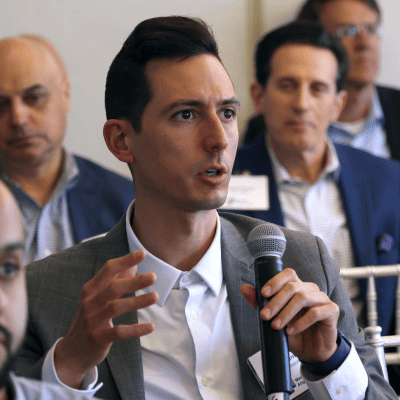
Sample Workforce Representation – Diversity Dashboard: Diversity Scorecards and Dashboards help executives and managers analyze and track the impact of their diversity initiatives to mobilize the organization for strategic culture change. Diversity is not a program; it is a systemic process of organizational change that requires measurement for organizational improvement and success.
Sample Employee Engagement Surveys: Conducting engagement surveys is a useful way to gather insight into what is important to your employees and what are the key drivers of engagement. They give employees a venue for open feedback. Knowing how the company measures areas such as employee satisfaction, management/leadership effectiveness, and working environment will give you tangible objectives for change. Feedback will give you valuable actionable data that you can implement for organizational growth. Here is an example of a short sample employee engagement survey and here is an example of a detailed sample employee engagement survey. Feel free to use these and customize for your needs.
External Affinity Organizations
There are so many great programs and organizations that support diversity and inclusion initiatives already in existence in Massachusetts and around the country. Below, check out a select group of external affinity organizations we believe are doing great things in the life sciences and beyond.
Sustainability
DEI Education
Health Equity
Develop a DEI Statement
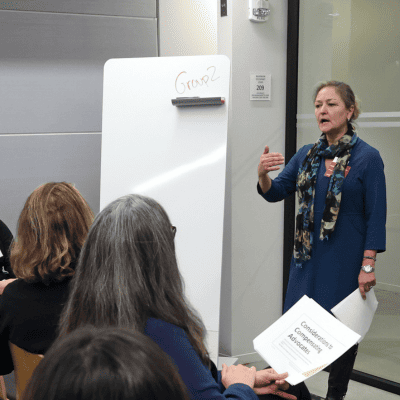
If your organization hasn’t yet developed a Diversity, Equity, and Inclusion (DEI) statement, now is the time to do so. Similar to mission and vision statements, a DEI statement serves as a foundational principle that guides your company’s aspirations. Articulating your dedication to DEI not only defines your commitment but also steers your company’s efforts toward achieving success.
Project Onramp
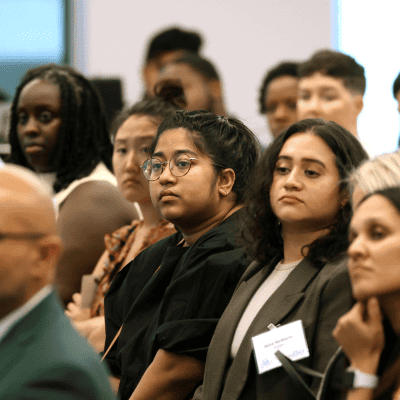
Promoting inclusivity in the life sciences, particularly for underrepresented communities, is a key strategy in combating racial disparities & income inequality. In 2019, MassBio partnered with Life Science Cares, Massachusetts Life Sciences Center, MassBioEd, & Bottom Line to launch Project Onramp – a program offering paid summer internships to underserved students in life sciences companies.
Life Science Cares
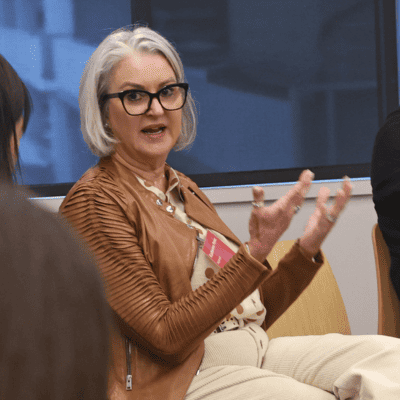
Life Science Cares is dedicated to eradicating poverty in Greater Boston, having established an impressive network of service organizations focused on combating poverty through initiatives in survival, education, and sustainability. As your organization considers dedicating time, energy, and resources to bolster our communities, address racial inequities, and nurture the upcoming workforce, we highly recommend collaborating with Life Science Cares and their exceptional partner organizations.
MassBioEd
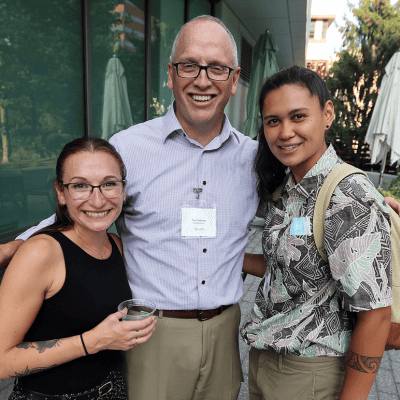
MassBio’s sister organization, MassBioEd, is dedicated to cultivating a sustainable life sciences workforce in the region through educational programs. These initiatives aim to captivate and inspire teachers, propel and motivate students, and illuminate the path from classrooms to careers. MassBioEd plays a crucial role in shaping the future life sciences workforce and offers professional development opportunities for the current workforce. Support their mission today.
Additional Resources From MassBio
Tools and Resources
MassBio ERG Report (Empowering the Success of Life Sciences Companies through Employee Resources Groups) outlines best practices, as presented by leaders and participants of various ERGs across the life sciences industry during MassBio’s June 2019 ERG Exchange event. While the needs of each organization differ, we believe the lessons that come from shared best practices will benefit the industry and, more importantly, the patient population that we all work every day to serve.
While progress is being made to improve D&I, real change relies on concrete action. We believe that companies bear the responsibility for implementing intentional policies to ensure diverse workforces where all employees feel welcome and have an equal opportunity to thrive and advance. MassBio and Liftstream’s report on gender diversity in the Massachusetts life sciences contained numerous recommended actions that companies can take to improve their gender diversity. We started with those and added to it based on what we’ve learned since to create a condensed set of actions that companies can take, starting today, to create lasting change. Download the recommendations here.
MassBio Policies on Diversity, Inclusion & Harassment
Ensuring Diversity at Events
MassBio is committed to diversity at all our programs, forums, and conferences, and we firmly believe that the diversity of our society and industry must be reflected in our speakers and audience. To ensure this is not simply talk, but action, we have released a policy to ban all-male panels at our events and to encourage those conferences we participate in to do the same. Download the policy and adopt it as your own.
Preventing Harassment at Industry Events
MassBio’s anti-harassment policy applies to all MassBio events as well as any events that are hosted at MassBio’s facilities. The policy supports MassBio’s commitment to diversity & inclusion and is an effort to ensure everyone feels welcome to participate and attend events in the life sciences industry. Download the policy and adopt it as your own.
Studies & Reports
Bentley University Workplace Diversity Research and Case Studies synthesize current literature, practical research, and solutions to key issues impacting diversity and inclusion (D&I). Each report provides insights and interventions to help organizations make progress toward their D&I goals.
Framing Unconscious Bias Awareness at Your Organization: Unconscious bias can be a major factor in whether a workforce is diverse. More likely than not, hiring managers impart their own hidden biases upon their hiring practices. This can be very damaging to an organization.
Human Rights Campaign (HRC) Corporate Equality Index (CEI) Criteria 2020: Launched in 2002, the HRC Foundation’s Corporate Equality Index has become a roadmap and benchmarking tool for U.S. businesses in the evolving field of lesbian, gay, bisexual, transgender, and queer equality in the workplace. The HRC Foundation is committed to keeping the criteria for the CEI rigorous, fair, and transparent by identifying emerging best practices that improve the experiences of LGBTQ employees of participating businesses. Equally important, we are committed to providing the resources and consultation that enable each business to attain a 100 percent rating.
PwC Global Diversity & Inclusion Survey diagnoses the maturity of your organization’s D&I program, compares your organization to others in your region and industry. Survey responses will be recorded and aggregated with the overall survey benchmark results; individual responses will be kept strictly confidential.
United Nations 2030 Agenda for Sustainable Development This Agenda is a plan of action for people, planet, and prosperity. The 17 Sustainable Development Goals demonstrate the scale and ambition of this new universal Agenda. They are integrated and indivisible and balance the three dimensions of sustainable development: the economic, social, and environmental. By 2030, achieve full and productive employment and decent work for all women and men, including for young people and persons with disabilities, and equal pay for work of equal value. Click here for The Sustainable Development Goals Report 2019.
Workplace Diversity, Inclusion, and Intersectionality 2019 Report takes into account data from more than 34,000 respondents across the globe, with over 22,000 respondents from the United States, on how they feel about D&I efforts within their own workplace. It explores diversity by generation, employee experience by demographics, and the importance of intersectionality.
Key Dates and Terms for Equity, Diversity, and Inclusion
2020 Diversity & Inclusion Calendar Whether you’re seeking to complete a diversity and inclusion calendar for your company, or simply to learn more about holidays in different cultures, this list offers a wealth of dates important to both religious and ethnic minorities in the U.S., as well as the people who want to honor them.
Talent2025.org DBP Glossary of Terms for Diversity, Equity & Inclusion (please note: This glossary of key equity, diversity & inclusion terms is not intended to be an exhaustive list of every word and term used in the life sciences industry and conversation about DEI. These are basic working definitions to be used as a reference to help move DEI efforts forward.)
The Language of Inclusion (please note: This glossary of key equity, diversity & inclusion terms is not intended to be an exhaustive list of every word and term used in the life sciences industry and conversation about DEI. These are basic working definitions to be used as a reference to help move DEI efforts forward.)
Tools and Resources from BIO
The BIOEquality Agenda is a national effort in collaboration with our partners and member organizations in the biotechnology sector that aims to counteract the systemic inequality, injustice, and unfair treatment of underserved communities.